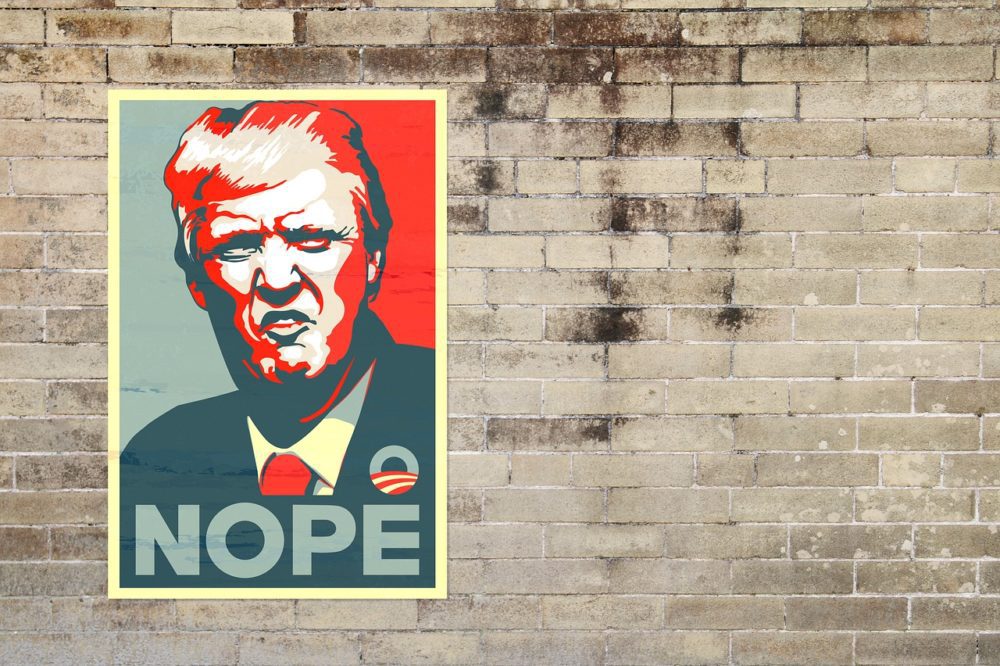Once seen as the land of the warm welcome, the US suddenly turned rather hostile at the weekend – and the world was watching.
The saying goes that there’s no such thing as bad publicity, but has Donald Trump’s first week in the White House done serious harm to the country’s tourism prospects?
This week saw the perma-tanned president sign executive orders that have pissed off a sizeable chunk of the globe.
So will people now be steering clear of the home of Lady Liberty – once a beacon of hope for the world?
Well those subject to the new travel ban may have no other choice. But as there is no majority-Muslim country among the US’ top 20 inbound markets, the direct tourism impact is expected to be insignificant.
More of a worry is the potential of plummeting numbers from its second largest market – Mexico. Not only has Trump’s wall plan soured relations with its neighbour, but the subsequent comments, many of them via Twitter, regarding president Enrique Pena Nieto will have thrown fuel on the fire.
However, the broader effect could be much bigger. Will the world’s travellers, generally considered an enlightened bunch, be put off by this act of blatant hostility?
According to travel research firm PhocusWright, it is too early to say.
A Travelzoo survey of British customers conducted just before the election saw one in five respondents say they would “definitely” not consider visiting the US as a destination if Trump was elected.
In November, shortly after Trump won the election, a PhocusWright survey showed that around one third of Germans, and a fifth of British and French travellers were less likely to visit the US when Donald took power.
That number would probably be even higher now. At the time of the study, many respondents had expressed hope that Trump’s pre-election banter was just hot air. But this last week has shown that is definitely not the case.
Although whether people will really follow through on their promises remains to be seen. Sometimes the lure of Disneyworld’s fantasies or the epic Empire State Building can override all those well-meaning principles.
Then there are the Trumpophiles out there – yes, they really do exist. Some people surveyed said the rise of Trump was actually an enticement to visit the US. Go figure.
Business travel is unlikely to be affected in the short-term, with morals not part of the decision-making process. Accounting for 15% of inbound visitors to the US, the sector will shrink only if Trump’s presidency results in less business between the US and the rest of the world.
Or if he introduces onerous visa processes that would deter conference organisers from sending delegates to the US.
There is less information about Australian travellers’ reactions to Trump’s assumption of power and consequent actions, but Aussies are reknowned for being a “resilient” bunch, rarely deterred from their travel plans by disasters, tragedies or political upheavals. Although recently there were calls for a travel boycott after yet another mass shooting.
Meanwhile, the World Travel and Tourism Council (WTTC) mourned the travel ban’s impact on the “fundamental right” of Freedom to Travel – a cornerstone of its mission – and the confusion it had created.
“WTTC believes that all people have the right to cross international borders safely and efficiently for business and tourism purposes,” president and chief executive David Scowsill said.
“The blanket suspension of admittance of travellers from Iran, Iraq, Libya, Sudan, Somalia, Syria and Yemen to the US flies against this principle.
“Suspending travel based only on a person’s nationality or their origin is wrong.”
Scowsill also pointed out that the “vast majority” of terrorist attacks in recent times had been perpetrated by “home grown, radicalised nationals of the country involved” and was therefore an ineffective method of protecting the country from future attacks.
Furthermore, he highlighted the negative consequences of the ban for the US travel industry and economy as a whole.
“Preventing ‘aliens’ from entering the US for legitimate business or leisure purposes is misguided and counter-productive for the American economy,” Scowsill said.
“The US has suffered in the past from similar isolationist policies. We urge the Trump Administration to reconsider this ban.”
Turn the clock back by just a week, US Travel Association president and chief executive Roger Dow enthusiastically welcomed Trump to the presidency.
“During the campaign and since the election, President Trump emphasized a number of issues for which the American travel community shares his enthusiasm: infrastructure, domestic jobs and the U.S. trade balance,” he said.
“As it happens, all of our longstanding policy priorities align perfectly with that agenda.”
Dow also said the association was ready to work with the new administration on “matters pertaining to travel security and the US entry process.
“Without security, there can be no travel,” he stated. But that was before the controversial travel ban kicked in.
With Trump’s background in the industry, he has been credited with understanding its needs and challenges. So while he has made it quite clear he is unfazed by the human impact of his actions, perhaps the dollar signs will have more of an effect.





